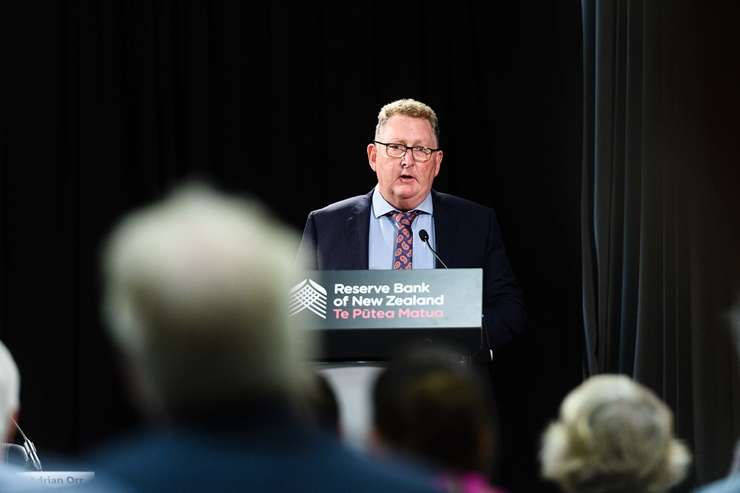1. First-home buyer scheme scrapped - what does the Budget have in store?
The big event this week is the Budget, which will be delivered by Finance Minister Nicola Willis on Thursday, May 30. Much of the Government’s housing-related plans have already been announced, but there’s always the possibility of a surprise or two.
However, last week’s announcements by Housing Minister Chris Bishop on the future direction of Kāinga Ora may mean the Budget is a non-event for the housing market.
Certainly, first-time buyers were left stunned and disappointed by the news that the Government had scrapped the first home grant scheme, which provided couples up to $10,000 towards their first home ($20,000 if it was a new-build).
Start your property search
At the margins, this will clearly delay the ability of some would-be first-home buyers to enter the market, and it’s estimated that perhaps two in every five recent buyers have received a grant. But given that the total required deposit at present is often much larger than that, perhaps in the vicinity of $150,000, the first home grants have probably been “finishing the job” for many buyers, not the primary source of equity. In addition, of course, grants (or subsidies) tend to just push up prices, so they can be a relatively inefficient way to help buyers.

Reserve Bank governor Adrian Orr. The Reserve Bank has warned that interest rates may need to be higher for even longer. Photo / Getty Images
Clearly, the removal of the grants will tend to dampen first home buyer activity a bit, but my hunch is that it won’t stop demand dead. After all, first home buyers can still tap KiwiSaver as well as the low-deposit lending allowances at the banks, while they’re also enjoying lower house prices, a higher stock of listings on the market (and hence more pricing power), as well as less competition from other buyer groups. For decades now, first home buyers have found a way, and perhaps the most important thing that would help them is a continued flow of new-build construction coming to market over the long term – more choice and (relatively) lower house prices.
2. The wait for mortgage rate cuts just got longer
The other key piece of news from last week – and not good news if you have a mortgage – was that the Reserve Bank’s monetary policy committee actually considered raising the Official Cash Rate ahead of its OCR announcement on Wednesday.
Here is the key passage in the summary of the May meeting: “In the context of persistent domestic inflation, weaker productivity growth, and uncertainty regarding the pace of normalisation in wage and price-setting behaviour, the committee discussed the possibility of increasing the OCR at this meeting.”
In the end, members decided to keep the OCR at 5.5% but they also warned that interest rates “may have to remain at a restrictive level for longer than anticipated ... to ensure the inflation target is met”.
That means the first cut in the OCR may not happen until the second half of next year (i.e. at least 12 months away). The issue is that inflation remains stubbornly high, and although the economy is being squeezed, OCR cuts can’t feasibly be delivered until price pressures are a lot more contained than they are at present.
Now, it’s also worth pointing out that the RBNZ is not forecasting mass job losses, and, of course, the OCR isn’t the only influence on mortgage rates either – factors such as bank competition and offshore financing rates matter too. Those are silver linings. But even so, any hopes for significant falls in mortgage rates are now even more likely to be a story for 2025 rather than 2024.
3. Movers could be about to start moving again
In the past 12-18 months, owner-occupiers haven’t been relocating as often as they normally would, perhaps due to lack of choice, conditional offers (and the need to sell before you buy), and, of course, continued high mortgage rates. Some of those factors remain in place, but the latest CoreLogic Buyer Classification data showed that movers’ market share ticked higher in April. It’s early days, but could be something to keep a close eye on. After all, lack of choice amongst the existing stock of listings isn’t an issue anymore, and life goes on too – there’ll be plenty of pent-up demand to shift, given people are always marrying, divorcing, being born, passing away etc.

CoreLogic chief economist Kelvin Davidson says the scrapping of the first home grant will delay the ability of some would-be first-home buyers to enter the market. Photo / Peter Meecham
4. Filled jobs set to drop?
On Tuesday this week, Stats NZ will publish filled jobs data for April. Recently these figures have been pretty solid, but with some high-profile job losses now showing through and the economy still battling, it’s not going to be a surprise if we see filled jobs go backwards at some stage soon. That’s another reason to be cautious about the durability of this housing ‘upturn’.
5. It’s tough for builders
Stats NZ will also publish the April new dwelling consent figures this week (Thursday), and, unfortunately, these will almost certainly have a negative tone too, with building approvals likely to have dropped further. On the plus side, we’re still miles away from the levels seen in the post-GFC hollow-out, meaning the risks of shortage-driven spikes in house prices are lower now too.
- Kelvin Davidson is chief economist at property insights firm CoreLogic













































































